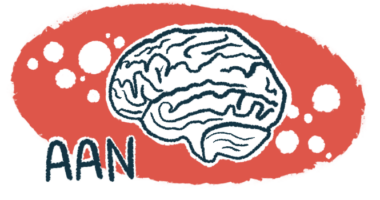Physicians Asked to Help ALS Patients Die Must Evaluate Motivations, Alternatives, Case Report Says

Physicians who help amyotrophic lateral sclerosis (ALS) patients die should carefully evaluate their motivations, capacity, and care goals, while also discussing alternatives with their patient, according to researchers.
An ALS patient case and commentary, “How Should Physicians Care for Dying Patients with Amyotrophic Lateral Sclerosis?” appeared in the AMA Journal of Ethics.
The researchers presented the case of “Dr. S,” a palliative care physician in Washington state, which passed the Washington Death with Dignity (DWD) Act in 2008.
Dr. S had been caring for Donald, a 49-year-old ALS patient who used to be a professional violinist and a marathon runner. Donald was diagnosed the year before and his disease worsened rapidly.
At the time of his latest appointment with Dr. S, Donald needed a wheelchair and required help to bathe, use the bathroom, dress, and eat. He was unable to use his hands. Although still able to breathe independently, his swallowing function was worsening. As a result, he had started a diet of pureed food and thickened liquids.
At the appointment, Donald said that, after much thought, he decided to end his life. He said that ALS had taken away everything that defined him or gave his life meaning, and that he was not comfortable being totally dependent on others.
He considered that progressing to respiratory assistance or losing the ability to eat or talk would be unacceptable.
“Right now, I can eat. I can talk. I can breathe. I want to die before I lose anything else of importance to me,” he told Dr. S.
Donald asked Dr. S to help him end his life as he was no longer able to do so. Dr. S, who had received such requests before, believed that, in certain circumstances, it is appropriate for physicians to assist terminally ill patients in dying. However, he found Donald’s case troubling as, given the patient’s inability to take any medications prescribed to hasten his death, the physician’s role would be more than “assistance.”
As Donald could not self-administer the needed medications, he was not able to able to take advantage of the law. Dr. S worried that if not having medical assistance to end his life, Donald could feel abandoned and desperate, and potentially pursue an isolated and/or violent way to die. Given this scenario, Dr. S was wondering how to respond to Donald’s request.
The authors commented that Donald’s case presented a “challenging ethical dilemma that asks us to reflect on the ways in which a physician can act as healer at the end of life.” The legal issues related to physicians who aid in dying (PAD) were also relevant.
They focused on the ethical implications for physicians in difficult situations such as Donald’s, provided ways to honor his wishes, and discussed legal implications.
First, they considered that Donald’s case was representative of the line between physicians and euthanasia, which are differentiated by the extent of physician involvement. Unlike PAD, in euthanasia — which is illegal in the U.S. — physicians administer lethal medications upon patient request.
In Washington state, patients are eligible for PAD if they are able to make decisions, have a prognosis of six months or less, and are able to take medication on their own. Donald’s inability to do so underlines the fact that ALS is at the center of ethical debates about PAD, the researchers said.
They advise physicians to carefully explore the patient’s motivation before deciding whether to honor the request. Donald’s motivations were clear and common, they noted. The physicians need to be mindful of their own responses as physicians who help patients die may evoke strong reactions from patients. Physicians need to weigh the harms and benefits, while “seeking to maximize beneficence, nonmaleficence, respect for autonomy, and justice as relevant to the case,” investigators wrote.
Dr. S must determine what a “good life” and a “good death” represent for Donald, although he should be mindful that the meaning of life may change rapidly, especially in terminally ill patients, the researchers said.
Once Donald’s motivations have been determined to be truly his own, Dr. S should obtain informed consent from him, both an ethical requirement to respect Donald’s autonomy and a legal requirement to access the DWD (death with dignity) law. At this point, the physician should discuss with the patient what ALS would be like with or without palliative care, as well as palliative care options. Also, he needs to make sure that Donald is not seeking PAD because he cannot afford palliative care options.
Next, the physician should discuss prognosis and care goals to avoid treatments and other clinical decisions that could be more harmful than provide actual benefits. Here, physicians need to weigh PAD and the harms they see associated with it against refusing to provide lethal medications, the authors said.
Besides palliative care, alternatives to PAD would include voluntarily not eating or drinking, withdrawing respiratory support and life-sustaining treatments, and pain medications that hasten death.
Overall, “this concrete framework would help Dr. S understand Donald’s request and also allow Donald to consider other options that might be better aligned with his motivations and goals,” the investigators wrote.
If Donald still wanted Dr. S to help him die, the physician could consider having Donald’s family members prepare the medication and help put it in his mouth or feeding tube, a procedure that has been used in Washington state, according to the authors.
As Donald would then self-administer the medication, he would be able to exercise his autonomy. This would preserve the patient-physician relationship, and be ethically permissible and legal in Washington state, they said.
However, this option is controversial in other U.S. states, as it could be seen as euthanasia. “Currently, this option resides in a legal and ethical gray zone,” the investigators noted.
Of note, the study’s senior author, Elizabeth Dzeng, an MD and PhD, is a professor at the University of California, San Francisco (UCSF) and has been involved in the statewide and UCSF response to PAD legalization in California.






